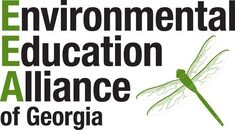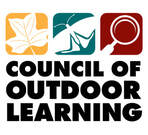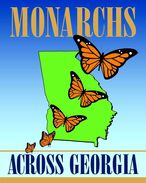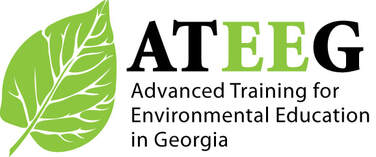Environmental Education Alliance of Georgia
- Our Story
- Our Team
- Our Events
-
Our Resources
- Wildlife Viewing
- Earth Month Activities
- Garden-based Learning
- EcoEngineering Challenges
- Community (Citizen) Science
- Phenomenon-Based Learning
- Problem-Based Learning
- Place-Based Learning
- Project-Based Learning
- Teaching about Climate Change
- Teaching about EJ
- Zero Waste Heroes
- SAGES Project
- Virtual EE Resources
- Environmental Clubs
- Evaluation and Assessment
-
Our Work
- Our News
- Our Impact
- JOIN or GIVE
- Member Portal
- Contact Us
- Outdoor Learning Store
- PassTick2023-4
- Annual Report
- New Page
- Past 2022 EEA Conference
- Past EEA Board 2021-22
- Past 2022 conferenceoverview
- Non-clickable Page
- New Page
- EEA Guest Blog
- Our Story
- Our Team
- Our Events
-
Our Resources
- Wildlife Viewing
- Earth Month Activities
- Garden-based Learning
- EcoEngineering Challenges
- Community (Citizen) Science
- Phenomenon-Based Learning
- Problem-Based Learning
- Place-Based Learning
- Project-Based Learning
- Teaching about Climate Change
- Teaching about EJ
- Zero Waste Heroes
- SAGES Project
- Virtual EE Resources
- Environmental Clubs
- Evaluation and Assessment
-
Our Work
- Our News
- Our Impact
- JOIN or GIVE
- Member Portal
- Contact Us
- Outdoor Learning Store
- PassTick2023-4
- Annual Report
- New Page
- Past 2022 EEA Conference
- Past EEA Board 2021-22
- Past 2022 conferenceoverview
- Non-clickable Page
- New Page
- EEA Guest Blog
ATEEG
EE Certification: Why Do We Need It?
Brenda G. Weiser, Ed.D.
Environmental Institute of Houston, UHCL
Environmental Institute of Houston, UHCL
Environmental educators come from a wide variety of backgrounds. Few environmental educators have training both in the content areas such as science, geography, or social studies and in the pedagogical areas such as teaching styles, learning styles, or assessment. Many states have examined their environmental education programs and have realized their state EE efforts need to be strengthened from within. One approach is through certification.
Certification is not a new term. It has been around for a long time. If you are certified, you most likely hold a document certifying that you have met specified requirements, such as for teaching or accounting. However, there are many environmental educators that are uncertain about what certification might mean for them and their states. Some frequently asked questions regarding the certification process include:
There are many reasons why a state might offer environmental education certification and why you would want to obtain it. Environmental education is not a professional field in which everyone receives the same or even similar training. Some environmental educators have a degree in education, some in natural science or resource management, some in social studies, and some do not have a degree. Some environmental educators work in the non-formal sector (museums, zoo, botanical gardens, etc.) while others find themselves working in the formal education setting. Yet all are environmental educators.
When someone indicates that they are an environmental educator, individuals within our own field often wonder what is the background or training that this person brings to the table. Do they have a strong background in environmental issues, natural resource content, and/or educational issues? Can they define environmental literacy? Do they know why Tbilisi is important to the field of EE or the history of environmental education? Can they write a lesson plan, talk to educators about educational issues, or explain how EE can be used to enhance their state standards?
By implementing a state EE certification program, these questions can be addressed, creating a baseline of knowledge and skills for people who complete the program. Therefore, if you have an EE certification, then others know what you know and are able to do.
There are many other reasons why you might want to obtain your EE certification. First, professional recognition and growth – as you go through your state’s EE certification program you should learn something new and challenge yourself. Once you complete the process, then others will recognize you as a leader in the field and respect you for your initiative and accomplishments. Next, upon completion of the EE certification program, you can be distinguished from other similar professions (classroom teachers, nature interpreters, etc.). You can say with pride that you are a professional environmental educator. Also, as you work toward your certification, you can build professional contacts, which can lead to new and exciting opportunities. You never know who might be looking for a new employee or might know someone who is looking for one. Finally, you may have the opportunity to work with other leaders in not only your state, but also on a national level – once again, providing you with new opportunities.
There are several ways a state can approach certification:
A variety of approaches may be taken by a state to implement an EE Certification Program. In fact, a state might use a combination of the different approaches – attending workshops yet meeting established criteria while working with a mentor. Thus, obtaining certification can vary from one approach to another depending on what approach best fits a specific state.
How long will the certification process take? This will depend on your state’s program and you. Most state programs involve a series of steps that applicants pursue at their own pace over a period of time. There are many other issues associated with the EE certification process. However, the intent of EE Certification is not to criticize those practicing EE, but to encourage individual professional growth. Many environmental educators have indicated a desire that the environmental education profession be more respected. The implementation of a state environmental education certification program is one step toward obtaining that respect and moving environmental education to a higher professional level.
Certification is not a new term. It has been around for a long time. If you are certified, you most likely hold a document certifying that you have met specified requirements, such as for teaching or accounting. However, there are many environmental educators that are uncertain about what certification might mean for them and their states. Some frequently asked questions regarding the certification process include:
- Why would anyone want to become certified?
- How can certification benefit me?
- What barriers to my career does certification pose? How long will it take?
- And, why would any state want to tackle this task?
There are many reasons why a state might offer environmental education certification and why you would want to obtain it. Environmental education is not a professional field in which everyone receives the same or even similar training. Some environmental educators have a degree in education, some in natural science or resource management, some in social studies, and some do not have a degree. Some environmental educators work in the non-formal sector (museums, zoo, botanical gardens, etc.) while others find themselves working in the formal education setting. Yet all are environmental educators.
When someone indicates that they are an environmental educator, individuals within our own field often wonder what is the background or training that this person brings to the table. Do they have a strong background in environmental issues, natural resource content, and/or educational issues? Can they define environmental literacy? Do they know why Tbilisi is important to the field of EE or the history of environmental education? Can they write a lesson plan, talk to educators about educational issues, or explain how EE can be used to enhance their state standards?
By implementing a state EE certification program, these questions can be addressed, creating a baseline of knowledge and skills for people who complete the program. Therefore, if you have an EE certification, then others know what you know and are able to do.
There are many other reasons why you might want to obtain your EE certification. First, professional recognition and growth – as you go through your state’s EE certification program you should learn something new and challenge yourself. Once you complete the process, then others will recognize you as a leader in the field and respect you for your initiative and accomplishments. Next, upon completion of the EE certification program, you can be distinguished from other similar professions (classroom teachers, nature interpreters, etc.). You can say with pride that you are a professional environmental educator. Also, as you work toward your certification, you can build professional contacts, which can lead to new and exciting opportunities. You never know who might be looking for a new employee or might know someone who is looking for one. Finally, you may have the opportunity to work with other leaders in not only your state, but also on a national level – once again, providing you with new opportunities.
There are several ways a state can approach certification:
- Experience based. Through this process, the candidate would participate in workshops, attend presentations, or visit leading environmental centers or parks. During this time, the individual would record what they did and the number of hours attended.
- Criteria based. With this approach, a state would establish specific criteria that would be achieved through written assignments, tests, video recordings, or the submission of documents such as lesson plans.
- Course based. A state would design a series of in-depth courses that provided the background necessary for candidates to demonstrate a set of competencies.
- Mentor based. The candidate would work with a mentor who would guide the candidate through activities designed to show expertise in EE.
A variety of approaches may be taken by a state to implement an EE Certification Program. In fact, a state might use a combination of the different approaches – attending workshops yet meeting established criteria while working with a mentor. Thus, obtaining certification can vary from one approach to another depending on what approach best fits a specific state.
How long will the certification process take? This will depend on your state’s program and you. Most state programs involve a series of steps that applicants pursue at their own pace over a period of time. There are many other issues associated with the EE certification process. However, the intent of EE Certification is not to criticize those practicing EE, but to encourage individual professional growth. Many environmental educators have indicated a desire that the environmental education profession be more respected. The implementation of a state environmental education certification program is one step toward obtaining that respect and moving environmental education to a higher professional level.
|
Environmental Education Alliance, Inc.
P.O. Box 801066 | Acworth, GA 30101 EEA does not does not discriminate on the basis of race, color, national origin, sex, age, or disability in its program , activities, or employment. For more information on EEA's non-discrimination commitment click here . Grievance officer may be contacted at [email protected] |
Proudly powered by Weebly
|



